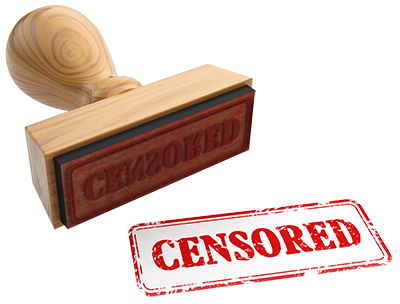It’s important to note these situations are not common. One should not rush to threaten any counterclaim or action without having strong proof and a strong legal foundation. Now let’s turn to a few applicable laws and potential recourses.
Anti-SLAPP
A “SLAPP” is a Strategic Lawsuit against Public Participation that is intended to intimidate, silence, or censor critics by encumbering them with the cost of legal defense, until they give up on their criticism or debate. This issue comes up most commonly in defamation cases. Anti-SLAPP statutes were enacted in order to stop such lawsuits. Many states, including California, have enacted anti-SLAPP legislation in order to impose penalties on parties that try to stop constitutionally protected speech by threatening with lawsuits. When a party may be trying to simply silence you with a bogus or frivolous lawsuit, Anti-SLAPP laws exist to protect you.

Abuse of Process
Abuse of process occurs when someone brings a “legal process,” not limited to the entire lawsuit but any part of the lawsuit, without reasonable grounds to do so. It also occurs when a party misuses the legal process with an ulterior motive. Some examples include threatening police action without grounds, serving a lawsuit that hasn’t been filed with the intent to mislead, using a subpoena to force a deposition unrelated to the case, filing a case for the purpose of intimidating someone, or even trying to force a defendant to purchase goods. A claim for Abuse of Process can be brought while the legal process is ongoing and damages can be significant.
Malicious Prosecution
Malicious prosecution is similar to Abuse of Process, but differs in two respects. First, it must apply to a whole lawsuit (not just a part of the lawsuit) or a criminal proceeding. Second, it can only be brought after a lawsuit or criminal proceeding concludes, there must have been a “favorable termination” to the proceeding, and damages can be significant.
Sanctions
Sanctions may be imposed upon parties that knowingly raise frivolous and unwarranted claims in litigation. Sanctions are codified in California Code of Civil Procedure § 128.7 and Federal Rule of Civil Procedure 11 (one applies in state court and the other in federal court). In either federal or state court, a court can require the “bad actor” to pay reasonable expenses, such as attorney fees, if they file any kind of claim that is meritless and meant only to harass the opposing party. Sanctions can be brought for other “procedural” missteps as well.
Attorney Discipline
While an attorney has a duty to zealously represent their client, attorneys also have a responsibility to assert claims in good faith and not to bring frivolous or meritless claims. In practicality, this means the claim must be recognized under existing law and the facts indicate a reasonable probability of success. An attorney may only be excused from this requirement if he/she has a good faith intention of “extending, modifying, or reversing” existing law (applied to both claims and defenses). See Rules of Professional Conduct of the State Bar of California Section 3-200. Similar rules exist in other states as well. The failure to do so could result in court sanctions and/or disciplinary action by the State Bar of California.
Be Certain a Claim is Valid
Before you begin to raise any of these kinds of claims, it is absolutely essential you are completely sure the claim you are bringing is valid. Raising a frivolous claim of any of the foregoing against another party, even as a bluff, could result in malicious prosecution or abuse of process claims brought against you. Tread carefully!
We're Here to Help
The attorneys at Nexio Law Firm are committed to helping our clients achieve their objectives. We can be reached at (949) 478-6830 or complete the contact form and we’ll be in touch soon.